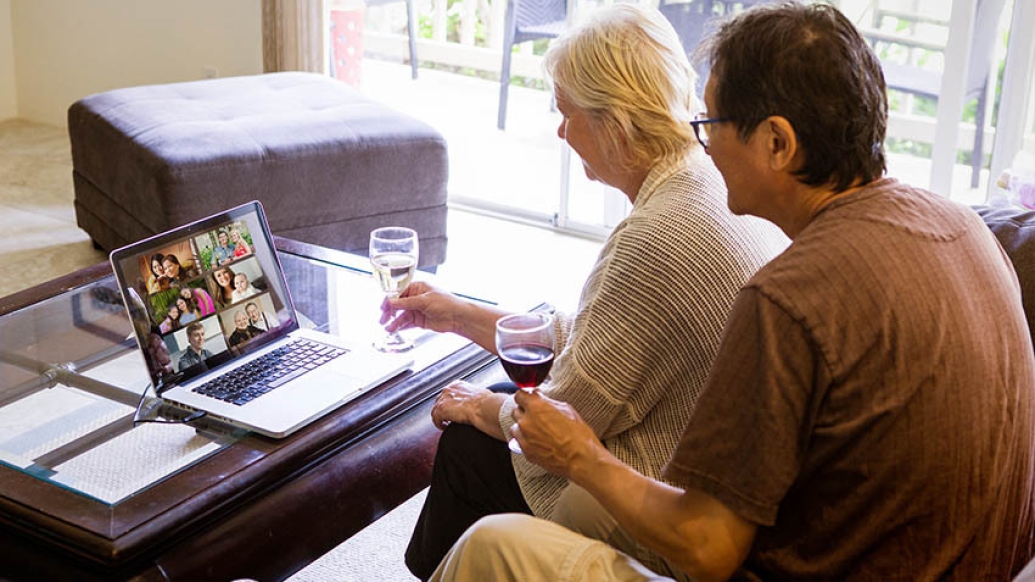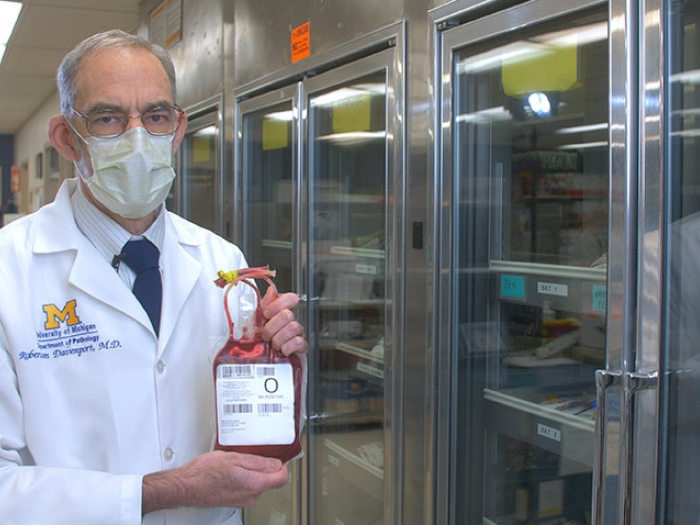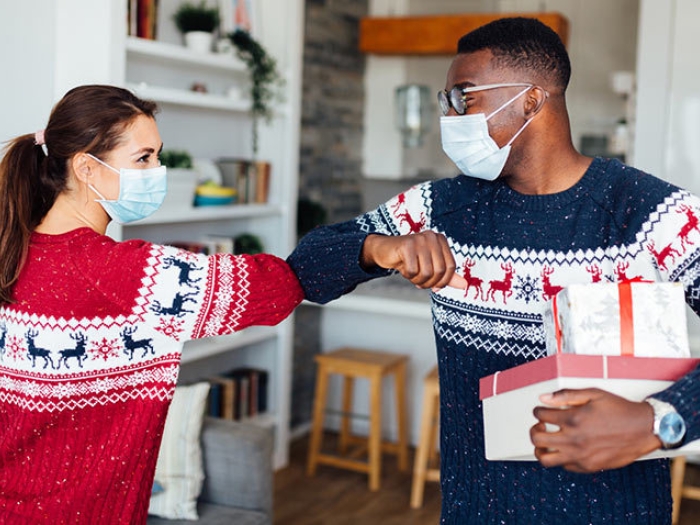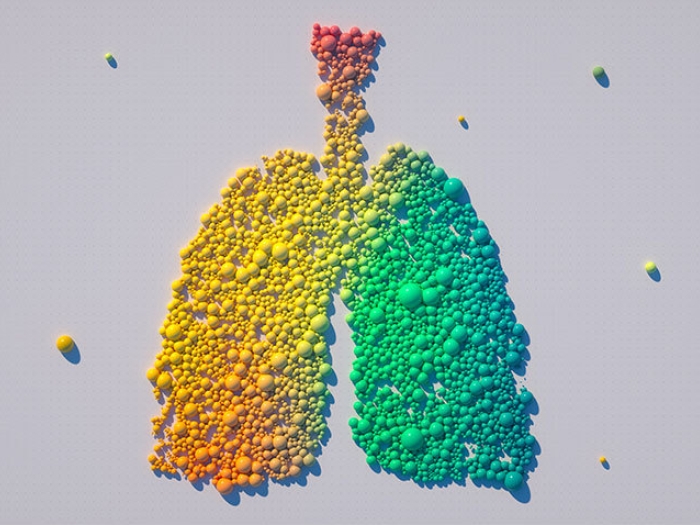Experts advise on how to celebrate without putting yourself, and your loved ones, at risk.
3:05 PM
Author |

With the holidays fast approaching, many people are wondering if it is possible to safely celebrate during a pandemic. Should you visit relatives or have family and friends over for Thanksgiving? What about planning for Christmas, Hanukkah or other celebrations?
Experts agree that the ongoing COVID-19 pandemic may mean that your typical holiday gathering will look different this year.
"Expanding your circle of people during the COVID-19 pandemic increases your risk of exposure," says Amanda Valyko, director of infection prevention & epidemiology at Michigan Medicine. She and other experts recommend against traveling, especially to communities that are seeing increases in cases of COVID-19.
Like Podcasts? Add the Michigan Medicine News Break on iTunes or anywhere you listen to podcasts.
And unfortunately, taking a test before traveling isn't a guarantee of safety. "It is possible to have been exposed, but not yet shedding virus. A negative test could give a false sense of security and lead to COVID-19 exposures," adds Valyko.
So what can you do to safely acknowledge the holidays, especially during a tough year?
Coming together (at a distance)
Limit your gatherings to those in your immediate household, if possible. "You can still have your favorite aunt make the pies and then divvy them up between households. Or one person could provide holiday to-go plates," says Sheria Robinson-Lane, Ph.D., RN, assistant professor in the department of systems, populations and leadership at the U-M School of Nursing.
If you do choose to get together, limit the size of your groups and ensure people wear masks and maintain a distance of at least six feet.
SEE ALSO: Seeking Medical Care During COVID-19
"Make sure there is plenty of space to maintain distance and keep some fresh air circulating by keeping a window open. If your mouth or nose are visible, you are potentially spreading more germs than if it were covered," says Robinson-Lane. She and Valyko suggest gathering outdoors instead, weather permitting.
College students contemplating a trip home should be careful. "If you have students returning from college that have not been strictly self-isolating in the two weeks before the holiday, I would highly suggest they keep a mask on indoors when around others and have their meal separate," adds Robinson-Lane.
Creating connection
"You can create a sense of connection by listening to the same Pandora or other streaming music channel during the meal, having the same menu, having a family call or Zoom before or after the meal, or even having an outdoor, socially distanced visit," says Robinson-Lane.
Maintaining connection with others is important for mental health. Amanda Leggett, Ph.D., of the U-M department of psychiatry suggests thinking about what are the traditions that are important to your family and friends that you can hold onto in a virtual way. Some suggestions include:
-
Having an ugly sweater party over Zoom or some other friendly competition.
-
Taking time to write a letter to a friend or have a phone call with someone you haven't talked to in a while.
-
Helping a homeless shelter prepare a Thanksgiving meal or make care packages for essential workers who are working over the holidays.
"One benefit of virtual communication is you may be able to connect with friends and family from long distances that you wouldn't usually get to see," says Leggett. Thinking of others can take the focus off of activities you may be missing out on, she adds.
Taking care during COVID
Being sick over a holiday is never fun—but it's especially important to take precautions if you or a loved one has COVID-19. If someone in your circle is ill, it is important to protect your family while caring for that individual, says Robinson-Lane. "If you are sharing a living space, it is important to quarantine for the full 14 days. This can certainly interfere with holiday plans, but it may be helpful to take the perspective that you are giving the gift to your family of protecting their health."
If the person who typically prepares the meals falls ill this year, they should pass those duties to someone else. "You can engage them by getting their recipe for the dish they would usually prepare and making it the way they would make it and dropping off a holiday plate," says Robinson-Lane.
SEE ALSO: Keeping Our Patients Safe During COVID-19
Or, suggests Leggett, have friends and family do a drive by or socially distanced visit to keep the person who is sick connected to the family.
If you've had and recovered from COVID-19, that doesn't necessarily mean you are now immune and can get together. "At this time there is not enough evidence to confirm that a COVID infection confers long term immunity," says Valyko. "Even those with previous COVID infections should continue to follow mask and distancing guidelines."
Party pressure
What do you say to relatives who insist on the usual fanfare? There are lots of ways (though we might not like them) to celebrate safely this year and maybe go all out next year, says Robinson-Lane.
"Love and connection seem to be at the root of all of our holidays. So don't wait for the holiday to show love or connect with the people you care about."

Explore a variety of health care news & stories by visiting the Health Lab home page for more articles.

Department of Communication at Michigan Medicine
Want top health & research news weekly? Sign up for Health Lab’s newsletters today!





